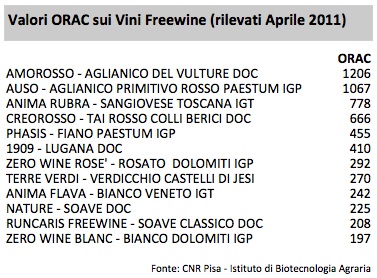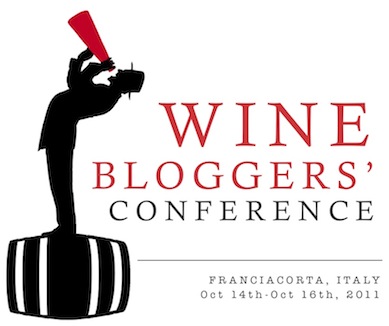Freewine® stays for sulfites free wines. Is a set of guidelines, to be put into effect according to a non-binding technical protocol. The aim of these guidelines is to reduce considerably the quantity of sulfites added to the wines produced by the companies taking part in the project: wines which therefore offer a pure expression of the combination between grape variety and area of origin!
Wines that have no ill-effects from a health point of view: that’s what more and more consumers around the world want from producers. They are asking for wines in which one can recognize the ingredients – the grapes – and whose consumption, as long as it is moderate and intelligent, doesn’t automatically assume unpleasant collateral effects: how many times, in fact, after tasting even “great” and famous wines, have we ended up with a splitting headache?
 A headache is our body’s response to the presence of a toxic substance, sulfur dioxide (SO2, also known as "sulfites"). Its damaging effects depend both on the quantity ingested and on the metabolism of the individual drinker: that is why some people are more likely to suffer adverse effects than others. Whatever the cause, there is no doubt that sulfur dioxide doesn’t do us any good; for this reason, people nowadays – who are more self-aware and inclined to behave in a healthier way – are wary of it and want producers to limit its use, eliminating it altogether if possible.
A headache is our body’s response to the presence of a toxic substance, sulfur dioxide (SO2, also known as "sulfites"). Its damaging effects depend both on the quantity ingested and on the metabolism of the individual drinker: that is why some people are more likely to suffer adverse effects than others. Whatever the cause, there is no doubt that sulfur dioxide doesn’t do us any good; for this reason, people nowadays – who are more self-aware and inclined to behave in a healthier way – are wary of it and want producers to limit its use, eliminating it altogether if possible.
Up until now, wine has always been totally dependent on the presence of sulfites: a small amount may be produced naturally by certain yeast strains that are to be found in the grape must, but more is added during various phases of the production process and immediately before bottling, so as to ensure that the wine will keep over a period of time. The quantity that one can use is laid down by law, and normally white wines (and sparkling wines) require a bit more than red wines.
 For this reason, the labels on all bottles of wine now have to carry the words "Contains sulfites" if their concentration in that wine exceeds 10 milligrams per liter.
For this reason, the labels on all bottles of wine now have to carry the words "Contains sulfites" if their concentration in that wine exceeds 10 milligrams per liter.
Sulfites also have the capacity to interfere with a wine’s taste characteristics. A lesser SO₂ content therefore makes a wine purer and more genuine.
However, thanks to the latest discoveries in the field of enology and to certain innovative technological processes, it is now possible to obtain wines with a very low sulfite content: such are the wines of the companies that are part of the Freewine® project.
Essentially, Freewine is founded on two precepts: the use of specific technology and the adoption of an innovative vinification protocol, that is to say a code of enological "good practice" which is designed to amplify the positive results obtained by this new technology.
In all of this, great importance lies in controlling the amount of oxygen that happens to be present in the wine, both during all the phases of its production and, in particular, just prior to bottling.
That is what Freewine is all about. A number of producers both large and small – have shown faith in this project. As pioneers, they have invested in it and have now made their first “low-sulfite” wines.
Their final objective is eventually to arrive at a "zero added sulfite" content, to the great benefit of the healthiness and naturalness of their wines.
The project avails itself of scientific support from the Department of Biotechnologies of the University of Verona and from the Institute of Biology and Agricultural Biotechnologies of the National Centre for Research (CNR) in Pisa.
 ott 20, 2011 at 17:10
ott 20, 2011 at 17:10  Freewine trademarkFind all news, info, videos about Freewine Group. See Freewine light presentation here in EWBC Brescia Press Kit
Freewine trademarkFind all news, info, videos about Freewine Group. See Freewine light presentation here in EWBC Brescia Press Kit EWBC; press kit,
EWBC; press kit,  Freewine,
Freewine,  no sulfites,
no sulfites,  wines in
wines in  Events,
Events,  Freewine,
Freewine,  No sulfites
No sulfites 




